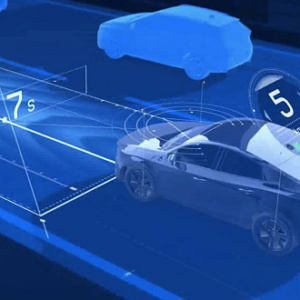Logistics IT Services
Transportation and Logistics IT Services and Solutions

Why Let Manual Errors and Delays Cost You More?
Managing complex logistics and transportation operations with outdated technology can lead to inefficiencies, such as delayed shipments, inaccurate inventory tracking, and manual data entry errors. Legacy systems often struggle to keep up with the dynamic needs of modern fleet management, real-time monitoring, and predictive analytics.
Without these, you’re unable to proactively address issues like delays, traffic congestion, or maintenance needs, leading to higher operational costs and missed opportunities for improvement.
Codewave specializes in modernizing transportation and logistics IT systems through custom software development, tailored to meet the specific needs of your business. Our solutions include fleet management software, logistics process automation, transportation management systems, and a range of additional services. These integrate seamlessly into your existing infrastructure.
We develop real-time movement tracking solutions using tools like AWS IoT and implement predictive analytics with Azure Machine Learning. This way, we enable SMEs like yours to make data-driven decisions and mitigate potential operational disruptions before they occur.

30%
Increase in fleet utilization
25%
Reduction in delivery costs
Download The Master Guide For Building Delightful, Sticky Apps In 2025.
Build your app like a PRO. Nail everything from that first lightbulb moment to the first million.
From Fleet Downtime to Full Visibility
Dealing with outdated systems, missed deliveries, and rising fuel costs? Modern IT solutions can optimize your logistics for better performance and cost savings.
Outdated vehicle tracking systems often result in excessive fuel consumption, unpredictable maintenance issues, and longer delivery cycles. These inefficiencies make it challenging to meet growing customer expectations for timely deliveries.
We develop innovative fleet management solutions using AWS IoT Core for real-time vehicle tracking and Azure AI for predictive maintenance. Our platform also includes driver behavior monitoring, carrier collaboration, load planning, and navigation features.
This enables fleet managers to schedule preventive maintenance, optimize fuel consumption, and minimize vehicle downtime.
Example: A last-mile delivery company managing 150+ vehicles may struggle with unexpected breakdowns and fuel wastage. After implementing telematics solution, they can expect a significant drop in on-road failures and significantly lower fuel spend. This can result in improved delivery SLAs and operating margins.
Static or manually planned delivery routes often result in longer travel times, wasted fuel, and driver fatigue, especially during peak traffic hours or when road conditions are changing. These inefficiencies can cause delays in shipments and increase operational costs.
We build advanced route optimization systems powered by real-time tracking and mapping, Google Maps API, and AWS Machine Learning. These systems analyze live traffic conditions, vehicle availability, and delivery priorities to recommend the most efficient paths.
Integrated admin dashboards offer comprehensive visibility into route performance, while plate recognition and dispatch tools streamline load distribution and track vehicle movement. Our platform also takes into account road infrastructure data to avoid known bottlenecks and ensure route safety.
Example: A food delivery chain operating in metro cities may experience frequent late deliveries during peak hours. By implementing an intelligent route optimization system, they can expect more efficient routing, increased on-time deliveries, and a notable reduction in fuel and labor costs.
Standard logistics tools often fall short when it comes to handling specialized operations, such as airport logistics, factory workflows, or secure user access. These gaps lead to delays, manual dependencies, and scaling issues.
We build tailored logistics platforms, starting with PoC & MVPs using tools like Firebase, AWS Lambda, and Node.js for rapid validation. We then scale to complete systems using React, .NET Core, and PostgreSQL. These platforms support module customization, apps, and plugins, secure authorization (via OAuth/Azure AD), and real-time notifications using Firebase Cloud Messaging or Azure Notification Hubs.
With this setup, teams can automate tasks, reduce manual work, and run complex logistics operations with greater speed and control.
Example: An airport ground operations team may rely on spreadsheets for crew scheduling. By building an aviation logistics platform, they can expect faster task assignment, live notifications, and improved shift coordination, resulting in reduced downtime and increased throughput.
Logistics businesses often adopt technology haphazardly without a clear roadmap, resulting in fragmented systems, manual workarounds, and increased operational costs.
We provide consulting services across business analysis, SDLC optimization, QA strategy, and digital risk management. To achieve this, we utilize tools such as Jira, Confluence, Postman, and Azure DevOps to define scalable technical roadmaps and streamline development, testing, and release processes.
Example: A regional freight company may face challenges due to outdated tools and inconsistent workflows across departments. After engaging with us for logistics digitalization consulting, they can expect a streamlined system architecture and faster delivery processing.
When operational data is scattered across different systems, logistics teams struggle to extract timely insights. This results in delays, inventory mismanagement, and missed performance targets.
We implement end-to-end data analytics solutions using tools like AWS QuickSight, Azure Synapse Analytics, and custom-built BI dashboards. These systems integrate supply chain data, improve compliance reporting, and provide real-time visibility into delivery performance, asset health, and inventory trends.
Example: A 3PL company managing multiple warehouses may lack real-time visibility into late shipments and stock levels. With our integrated analytics solution, they can expect better decision-making, reduced penalty costs, and improved resource planning across their supply chain.
Legacy IT systems in logistics frequently struggle with scalability, leading to frequent downtime, delayed deployments, and escalating infrastructure costs.
We offer end-to-end managed services including cloud-based data management, virtual asset optimization, logistics cloud migration, CI/CD automation, and transportation cloud security.
Our solutions utilize AWS, Azure, Docker, Kubernetes, Terraform, and GitHub Actions to ensure high uptime, faster deployments, and secure infrastructure that grows with your operations.
Example: A logistics tech firm expanding to new cities may face frequent outages and development slowdowns. After migrating to our managed cloud with CI/CD automation, they can expect 99.9% uptime, faster software rollouts, and a significant drop in IT management overhead.
Fragmented systems and manual processes across supply chains, including inventory updates, dock scheduling, payment processing, and shipment tracking, lead to delays, high operational costs, and scalability issues.
As a software partner, we develop custom automation workflows for supply, production, and parcel logistics, integrating systems such as ERP, WMS, and TMS using tools like AWS Step Functions, Azure Logic Apps, Node.js, and Python-based microservices.
We also digitize payment processing, automate document generation and reporting, and develop route planning and dock scheduling modules with live sync to fleet data and inventory.
Example: A regional logistics company may handle dock scheduling and payments manually across different systems. After adopting our custom-built automation suite, they can expect faster dispatch turnaround times, real-time inventory synchronization, and unified reporting. This can result in smoother handoffs and reduced admin overhead.
In logistics, delays and losses often happen when teams lack real-time visibility into shipment status, vehicle location, or equipment condition. Without live updates, it’s hard to reroute deliveries, prevent spoilage, or act quickly during disruptions.
We build mobile and IoT-enabled systems that provide live insights using 5G-connected sensors, GPS, RFID, QR codes, and Bluetooth beacons (wireless transmitters). Our solutions also include digital twins for simulating asset performance, and edge processing (via AWS Greengrass) for faster local decision-making.
These tools are accessible via custom React Native mobile applications and can track ESG metrics, cargo conditions, and equipment health in real-time.
Example: A cold chain logistics company may experience spoilage due to temperature fluctuations during transit. With our IoT-integrated mobile solution, they can expect real-time alerts, live tracking, and quicker responses, hence reducing losses and ensuring safety compliance.
Speak to an Expert Today
What Working With Us Looks Like (Spoiler: It’s Seamless)
We’ve seen too many logistics solutions fail to meet real-world needs. Our approach is different. We focus on understanding your unique operations, designing tailored solutions, and ensuring seamless integration, so your logistics system works efficiently from day one.
We begin by thoroughly understanding your logistics needs, whether it's real-time tracking or route optimization. We collaborate closely with your team to gather both functional requirements (such as tracking features, reporting, or scheduling) and non-functional requirements (like system scalability, security standards, or performance metrics).
This ensures we have a clear understanding of your goals, challenges, and business processes. Moreover, it forms the foundation for a logistics solution tailored to your exact needs.
Our Design Thinking process helps refine your requirements further by focusing on user needs (such as simplifying real-time communication between drivers and dispatchers). It also takes into account operational workflows (like streamlining inventory management or order fulfillment processes) and key pain points in your logistics process.
This approach encourages innovation and ensures the solution directly addresses these challenges. By prioritizing the most impactful features, such as yard management and dock scheduling (for instance), we ensure that the critical issues are addressed first, enabling smoother operations and minimizing disruptions.
We begin by establishing the basic structure through wireframing and UI/UX design. Using Figma and Sketch, we create the core layout and flow for your logistics solution, whether it's a freight management app or a fleet management dashboard.
This helps define how users, such as drivers, customers, and administrative staff, will interact with the system. The result? An intuitive prototype interface and a smooth workflow before development begins.
Our development phase integrates DevSecOps practices to ensure your logistics software is secure, scalable, and reliable. By embedding security into every stage, from code development to deployment, we proactively address vulnerabilities, ensuring your systems are protected against threats such as data breaches and cyberattacks.
Extensive testing follows, including automated unit tests, integration tests, and security scans, to ensure that every feature functions smoothly and securely. This results in a logistics solution that operates flawlessly, maintaining high performance and reliability.
Once development is complete, we launch a Minimum Viable Product (MVP), focusing on core functionalities such as real-time route optimization, cargo tracking, and inventory management. This allows you to validate key features, gather user feedback, and make informed adjustments before a full-scale rollout.
The MVP ensures that the most critical elements are addressed, allowing you to begin optimizing operations. Meanwhile, we continue to refine and enhance the system based on real-world usage and insights.
The development process doesn't stop at the MVP. We provide ongoing support to monitor system performance and optimize the solution. We also utilize emerging technologies, such as AI-powered analytics and predictive maintenance. These help enhance efficiency by identifying bottlenecks, automating tasks, and ensuring proactive issue resolution.
Powering Logistics with the Right Tech Stack
| Service | Tech Stack |
| Real-Time Fleet Tracking | AWS IoT, Google Cloud IoT |
| Predictive Maintenance | Azure AI, AWS Machine Learning |
| Route Optimization | Google Maps API, Azure AI |
| Asset Tracking | Azure Digital Twins, AWS IoT Core |
| Mobile App & IoT Integration | React Native, Azure Mobile Apps |
| Data Analytics & Reporting | Google BigQuery, AWS Glue |
| Security & Compliance | AWS KMS, Azure Key Vault, DevSecOps Practices |
| DevOps & Continuous Integration | AWS CodePipeline, Azure DevOps, Jenkins |
Microservices Architecture | Spring Boot, Node.js, Docker, Kubernetes |
Tailored vs. Templated: IT Services for Transportation and Logistics
We recognize that every logistics operation presents its unique set of challenges. Off-the-shelf IT services for transportation and logistics often fall short in handling the complexities of real-time fleet tracking, route optimization, predictive analytics, and inventory management. That’s why we build custom IT solutions tailored to your specific business needs.
| Parameter | Our Custom Solutions | Off-the-Shelf Solutions |
| Flexibility | We design features around your specific logistics needs, such as real-time tracking, risk forecasting, or dispatch automation. | These tools come with fixed features and often require manual workarounds to fit your workflows. |
| Scalability | Our solutions are built to grow with your fleet and operations, adapting to increased shipment volumes and complexity. | These tools may not scale well as your business grows and often require patchwork integrations or replacement. |
| Security | We implement custom security protocols, including encrypted data transfers and access control, tailored to your compliance and operational needs. | Most use standardized security measures that may not meet your industry-specific or regulatory requirements. |
| User Experience (UX) | We create role-based, intuitive interfaces for drivers, warehouse teams, dispatchers, and managers to ensure a smooth and familiar workflow. | Generic interfaces are not always intuitive for logistics teams, which can slow down day-to-day operations. |
| Cost | While the upfront investment is higher, the long-term ROI is strong due to improved efficiency, reduced disruption, and enhanced fleet utilization. | Lower initial costs can lead to higher long-term expenses from add-ons, customization, and inefficiencies. |
| Competitive Advantage | We develop advanced features, such as predictive demand forecasting and dynamic route optimization, to help you stay ahead in a competitive logistics environment. | Generic tools offer limited differentiation and may not support your unique business goals or customer expectations. |
Proven Success, Trusted by Leading Logistics Teams
Hear directly from logistics teams who’ve transformed their operations with our logistics IT services. With features like predictive demand forecasts, risk forecasting, smart vehicle consoles, and in-app navigation, they’re experiencing real improvements in inventory management, route optimization, and real-time decision-making.
Check out our portfolio to see the impact for yourself!
We transform companies!
Codewave is an award-winning company that transforms businesses by generating ideas, building products, and accelerating growth.
A Network of Excellence. Our Clients.
Frequently asked questions
A customer logistics portal includes registration, cost estimation, scheduling pick-up and delivery, payment gateway integration, real-time order tracking, push notifications, and a ticket/complaints portal for seamless communication and support.
The cost of developing a logistics app ranges from $50,000 to $150,000, depending on the complexity and features. A solution similar to DHL can be created within a budget of $80,000 to $120,000. If you incorporate advanced technologies such as AI, computer vision, or blockchain for smart container management and supply chain tracking, the cost may increase to $200,000 to $350,000.
Drivers can manage the entire shipment lifecycle. Ideally, they start by accepting requests and navigating to pick-up/drop locations. The app features in-app navigation and customer support. It also provides time estimation calculators. Drivers can accept or reject tasks, ensuring efficient delivery and communication.
The admin panel provides features such as user and sub-admin management, revenue tracking, fleet management, ticket and complaint handling, and an analytics dashboard for real-time monitoring and informed decision-making.
Blockchain in logistics enhances transparency and security by enabling secure, immutable transaction records that are tamper-proof and verifiable. It can be used for tracking shipments, ensuring authenticity, and improving the visibility of goods in transit.































































